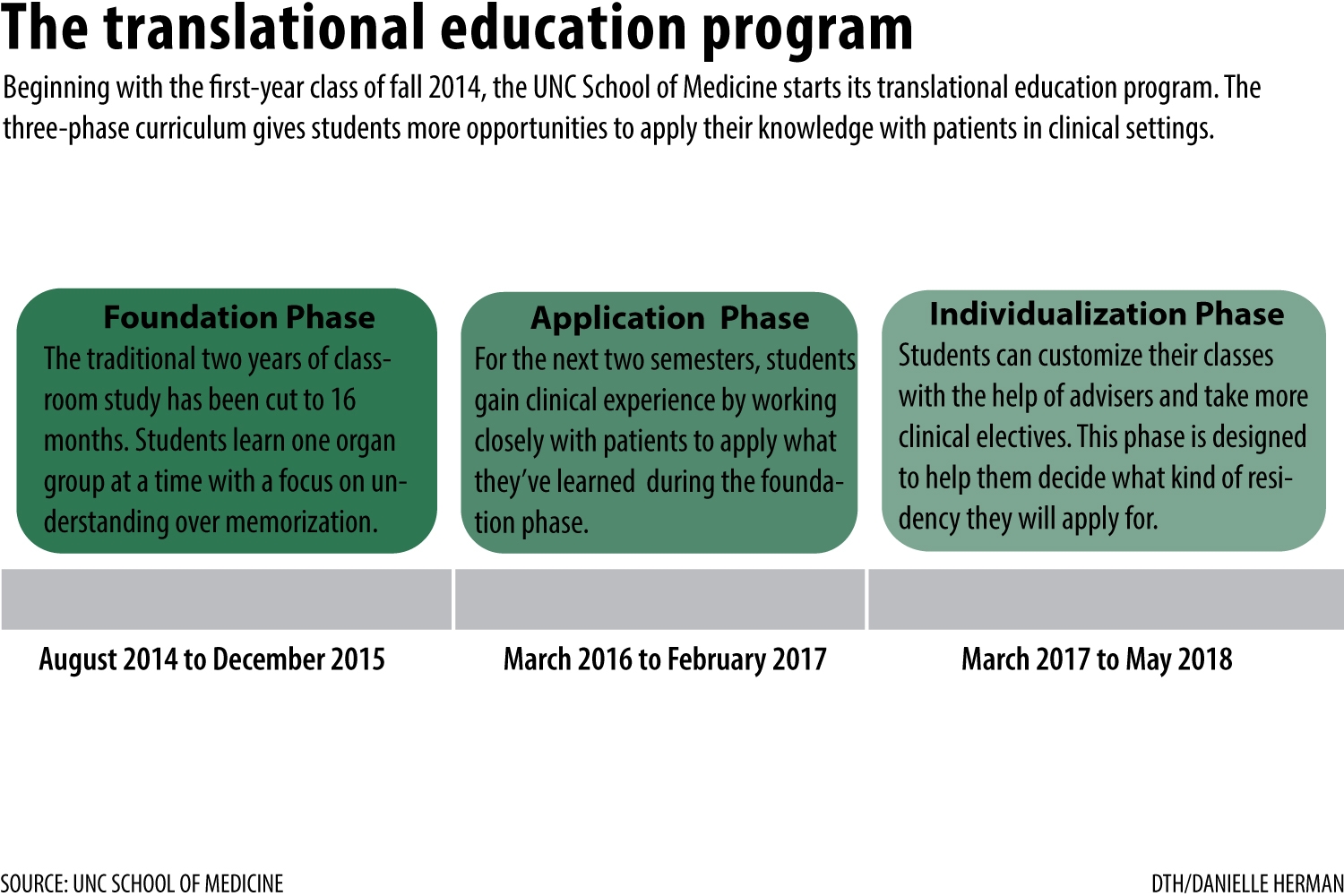UNC School of Medicine's Curriculum Evolves
First-year medical school students at UNC are the guinea pigs for a new curriculum this year.
The curriculum, called Transitional Education at Carolina, or TEC, launched this fall and highlights patient care, clinical experience and a shift away from repetitive memorization.
The curriculum will focus on understanding and application, said Robert Bashford, associate dean of admissions for UNC School of Medicine.

“My example is that I learned the Krebs Cycle. No, I memorized it, and I could spit it back, six times. I never understood it. Now I’m the example that we would teach what it means and not necessarily to memorize it and be able to spit it back,” he said.
Bashford said he first heard about potential changes to the curriculum three years ago, with active planning beginning about two years ago.
“We would never make a change in curriculum unless it were to the advantage of the student,” he said. “We’ve been doing this a very long time, teaching medical students; we wanted to make a change that would make sense for our students.”
Lourens du Pisanie , a first-year medical student, said he is very excited about the new curriculum.
“They kind of shortened the curriculum and made it more streamlined and took out a bunch of stuff that wasn’t necessary to teach us,” he said.
Du Pisanie said TEC adds a more personal aspect to education.
“Our first experience with medicine is not a dissection, but rather through and learning how people’s lives can be affected by doctors,” he said.
Meghan Forstchen, a senior biology major, said the new curriculum makes her more eager to apply for medical school.
“I feel like having more practical experience and getting this exposure will not only help prepare me for life after med school, but also make me a better doctor,” she said.
The curriculum will set students up to be lifelong learners because they can’t get everything they need to know in just four years, Bashford said.
“What forced the change was the huge increase in knowledge, in facts, in data,” he said.
To take advantage of the volume of information, medical students will need to be comfortable with technology.
“We know they know technology and we’re trying to play into what they know about technology,” Bashford said. “So in the old days, we would memorize, memorize, memorize - that’s no longer necessary because they can look it up.”
The new curriculum also emphasizes medical ethics and cultural sensitivity.
“We look at race, ethnicity, gender, sexuality, death — giving our students an understanding of these big concepts that cover all of medicine,” he said.
Contact: This email address is being protected from spambots. You need JavaScript enabled to view it.
- Created on .